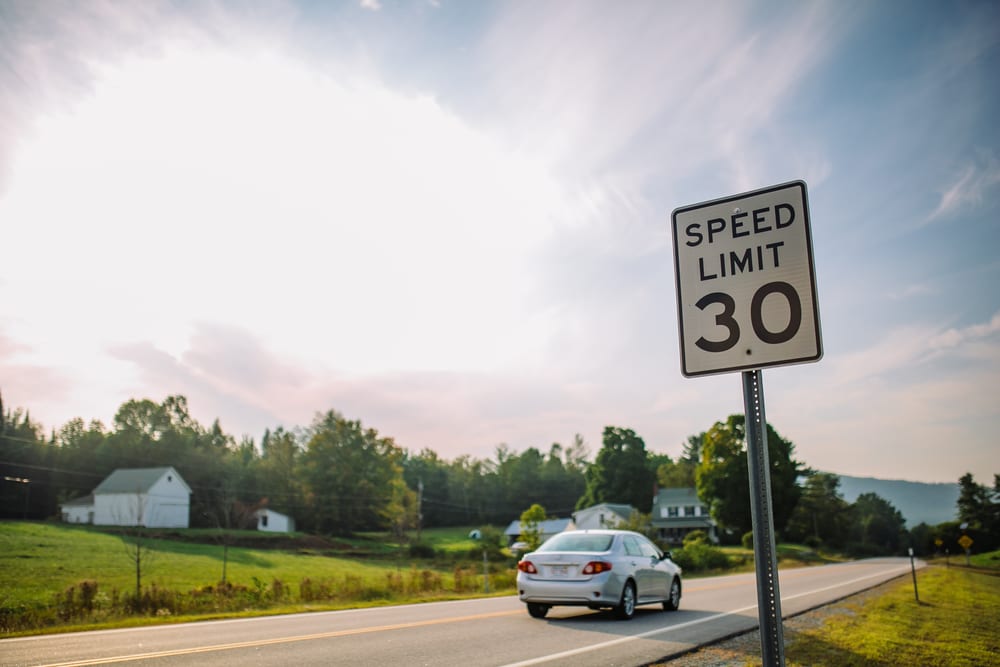

Following is an overview of the laws, limits, and fines as they relate to speeding traffic violations in the state of Massachusetts.
Speed limits in Massachusetts
65 mph: most freeways and interstates outside of central business districts
55 mph: two-lane roads as posted
50 mph: highways outside of thickly settled business districts (“thickly settled” is defined as an area where residential or commercial structures are less than 200 feet apart)
40 mph: undivided highways outside of thickly settled business districts
30 mph: inside thickly settled or business districts
30 mph: maximum residential speed limit (may be lower in some areas)
20 mph: school zones
Massachusetts has a wide variety of jurisdictions where different speed limits may be posted.
Massachusetts code on reasonable and prudent speed
Maximum speed law:
According to Ch. 90, Section 17 of Massachusetts vehicle code, “No person shall "run" a motor vehicle at a rate of speed greater than is reasonable and proper, having regard to traffic and the use of the way and the safety of the public.”
Minimum speed law:
Section 9.06(6)(a) states, “No person shall drive in such a manner as to obstruct unnecessarily the normal movement of traffic upon a highway.”
Due to variations in speedometer calibration, tire size, and margins of error in speed-detecting technology, it’s uncommon for an officer to pull a driver over for going less than five miles above the speed limit. However, technically any amount over can be considered a speed violation, so best practices are to stay within the limit.
Massachusetts has a mix of absolute and prima facie speed limit laws. This means that in certain cases, a driver is allowed to argue their case based upon the claim that they were driving safely, despite driving above the posted speed limit. Drivers may also fight a ticket by claiming innocence based on the following arguments:
The driver may oppose the determination of speed. In order to claim this defense a driver must know how his or her speed was determined and then learn how to disprove its accuracy.
A driver may claim that an emergency situation caused the driver to break the speed limit in order to prevent injury or damage to themselves or others.
The driver may claim a case of mistaken identity. If a police officer clocks a driver speeding and subsequently has to find them again in traffic, it’s possible that they could make a mistake and pull the wrong car over.
Penalty for exceeding the speed limit in Massachusetts
First-time violators may:
- Be fined not less than $50 (plus $10 for each mph over 10 that the driver was traveling, and a $25 surcharge for the Head Injury Treatment Services Trust Fund)
Penalty for reckless driving in Massachusetts
There is no set speed in Massachusetts at which violating the speed limit is considered reckless driving. That determination depends upon the circumstances surrounding the violation.
First-time violators may:
Be fined between $20 and $200
Be sentenced to between two weeks and two years of jail time
Have their license suspended for at least 60 days
Violators may be required to attend traffic school if too many points are accumulated.



